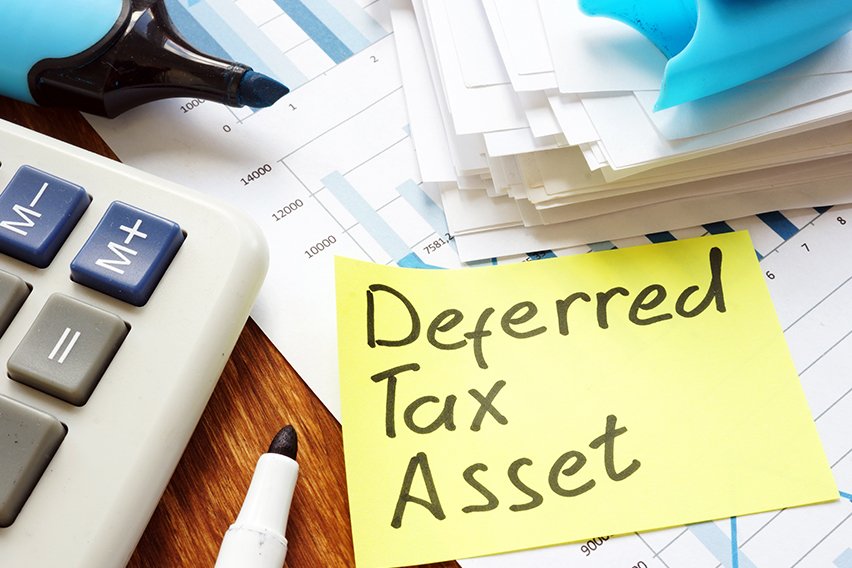13 Ways & Tips to Help Recovering From Burnout

Does it feel like you’re the battery of an old smartphone that never fully charges, even overnight? As with your phone or laptop, your brain and body can only handle feeling overworked and overwhelmed for so long before they collapse.
The more stress you experience without taking steps to reduce it or manage it, the more exhaustion you will experience. It takes it’s a toll both mentally and physically. As a result, you feel unmotivated, exhausted, ineffective, and unaccomplished since it seems like nothing you do matters. When those feelings take hold of you, the symptoms can adversely affect your ability to function in all areas of your life once they start.
If you notice any of these signs, you have experienced burnout, and you should take steps to help you recover and regain self-control.
In this article, we’ll cover what burnout is, the warning signs, and how to recover from burnout.
Here’s What We’ll Cover:
Are You on the Road to Burnout?
How to Recover From Burnout: 13 Tips
Does Burnout Recovery Require Radical Change?
So, What Is Burnout, Exactly?
Burnout is a combination of physical exhaustion and emotional exhaustion. When combined, the two result in chronic stress. This can happen when you are under long-term strain in your job. It can also happen when you have held a physically or emotionally draining position for an extended period of time. Burnout can also result when your efforts at work fail to produce the results you expected, and you feel deeply discouraged as a result.

There are different burnout symptoms. You might be experiencing burnout if you:
- Do not like going to work.
- Feel tired all the time.
- Feel bored or depressed by your work.
- Feel overwhelmed with your responsibilities.
- Take part in escapist behaviours, such as excessive drinking.
- Show less patience with others.
- Feel hopeless in life or work.
- Have physical symptoms such as chest pain, breathlessness, sleeplessness, or palpitations. (Make sure that you see a physician about these!)
What Does Burnout Look Like?
Desperation isn’t always associated with burnout. Signs of burnout may include feelings of cynicism, a sense of helplessness, and the conviction that nothing you do matters. You might say:
- “I can’t keep up no matter how hard I try.”
- “I wasted my time here.”
- “I’m exhausted, and I don’t sleep enough.”
- “Am I with the right company?”
- “I hate Mondays, and living is pointless.”
You may feel as if the entire world is against you when you are burned out. You may also think life is unfair and that you’re being crushed under its immense weight.
Are You on the Road to Burnout?
Michael P. Leitner and Christina Maslach are two doctors that wrote an entire book about burnout. They explain the six main imbalances that lead to burnout. Do any (or all) of these sound familiar to you?
- Values conflict: What are your own core values? Those core values are out of alignment if you are suffering from a values conflict with your employer, company, or cofounder.
- Lack of control: Your job does not give you much authority or control. It doesn’t matter what you contribute or how you help. Despite your attempts, no one cares. A nosy micromanager may be constantly undermining your sense of control.
- Insufficient reward: There is not enough reward for your hard work. You feel unappreciated. It feels like the company you work for has taken advantage of you despite all the time, money, and effort you put into it.
- Workload: The people around you are dumping their burdens on you, or you are trying to meet too many unrealistic deadlines. You may find that your work is too complicated for you to handle alone. If your workload is just too much to handle, you’re at risk for burnout.
- Unfairness: Your organization treats you unfairly. It ignores your complaints and requests. The assignments and promotions might go to butt-kissing people rather than to honest and hard-working people like you. According to a 2018 report by Gallup, workers who feel strongly supported by their managers are 70% less likely to experience burnout.
- Breakdown of community: You feel paranoid and unsafe at work. It appears that your colleagues speak ill of you behind your back, or they act patronizingly in front of you. Often, you may feel as if no one can listen to you when you’re dealing with conflict.
How to Recover From Burnout: 13 Tips
Burnout will not go away on its own unless you address the underlying issues causing it. If you ignore it, it will only cause you further pain, so it’s important that you begin recovery as soon as possible.
The following are some recovery from burnout strategies that might be useful in different situations. You may find that some of them are effective for you, while others are not. Choose a combination of best practices and strategies that fits your needs.
Think About the “Why” of Burnout
First, identify what caused the burnout. This may be obvious in some instances. Sometimes, it will take time and reflection to figure this out.
Do you feel resentment towards your job? Resentment often indicates that something essential is missing.
To get to the root of any negative feelings that you may have about your role, consider using a technique like the Five Whys. After identifying the source of your burnout, think of at least one way you can manage or eliminate it.
Keeping a stress diary is another useful method for identifying the root causes of burnout. Each day, write down what stresses you out and the reason why it stresses you out. Keeping a stress diary can be helpful if you maintain it for a reasonable length of time.
Focus On the Basics
You may need to take care of your body if you experience burnout. To maintain good health and well-being, it is important to think about the basics.
Exercise regularly. Countless studies have shown that exercising offers many physical and mental benefits. Additionally, it improves your mood, overall health, and quality of life.
Also, make sure that you’re getting enough sleep, eating well, and drinking plenty of water throughout the day. It might sound obvious, but busy professionals often neglect their most basic needs. They tend to take care of others and their responsibilities far more than they care for themselves.
For improved relaxation, you can also try meditation, yoga, or other mindfulness practices.
Take a Vacation or Leave of Absence
A vacation or time away from work gives you the distance you need to relax and relieves you of mental exhaustion.
You may still have stress and problems that await you when you return to work. Still, taking time off is vital for getting the rest you need and coming up with lasting solutions to burnout.
Say “No” Politely
Avoid taking on new responsibilities or commitments while you are recovering from burnout.
While this might be difficult, particularly if you have coworkers who need your assistance, it is important. You can only deal with so much at any given time.
When you’re running a small business, this is key, as well. Taking on too much work can lead to burnout. If you end up hating the business you’ve started, it’ll be hard to continue operating it.
Reassess Your Goals
Reassess your personal goals. Burnout can occur if your work isn’t aligned with your values or if it doesn’t contribute to your long-term goals. Having no idea what your goals are can also lead to frustration and burnout.
Consider your values and what makes your work meaningful. A self-analysis can help you learn what you value most and what is lacking in your life and work. This is applicable to entrepreneurs as they too, experience burnouts.
Then, find ways to tie your values and mission to your current role. This may mean tailoring your job to fit your personality, or even just changing the way you consider your job. Clearly understanding your responsibilities and expectations at work will also help a great deal. Unfortunately, only 60% of workers say they clearly know what’s expected of them each day.
Talk to People You Trust
Feeling uncertain of how to begin finding ways to ease your stress and sorting through burnout causes is normal.
There can be times when burnout becomes so overwhelming that deciding how to deal with it seems impossible. Identifying potential solutions may also be difficult when you are exhausted. This is true for mental and physical exhaustion.
Having a trusted loved one by your side can lift your spirits and help you feel less alone. You can brainstorm solutions with friends, family members, and partners.
These people are close enough to your life to understand what works for you. They are also distant enough to consider the situation with some clarity. Developing friendships with people you work with can also help buffer you from job burnout.
Practice Self-Love
Burnout can lead to feelings of failure and a loss of direction in life. You might feel like you can’t do anything right, or you’ll never achieve your goals.
When burnout, you’ve probably pushed yourself beyond a normal breaking point. This creates doubt in your abilities. It also creates a negative relationship with yourself.
Treat yourself with love and support. Keep in mind that you do not have to be perfect, and it’s OK to need a break.
Remember What Makes You Happy
You may forget what you once enjoyed due to severe burnout.
Getting to work every day can make you angry and resentful if you have lost the passion for a career you once loved.
Maybe you don’t care about your favourite hobbies anymore, or maybe you don’t answer your friends’ texts because you lack the energy to converse.
There may even be times when you feel perpetually irritated and snap at your partner or family without meaning to.
List all the things that make you happy to counter these negative feelings. These might include:
- Long walks with your best friend to improve your social interactions
- Taking your child to the park
- Reading a book in the bathtub
- Promote good healthy eating habits
Maintain this habit even after you feel more like yourself. It will reduce your risk of burnout.

Talk to a Therapist
Face-to-face with burnout isn’t easy, especially after it’s already impacted your personal relationships.
Therapists can help you identify causes of burnout. They can also help you explore possible coping methods, and navigate any life challenges contributing to burnout.
In addition to causing feelings of helplessness, burnout can also contribute to feelings of depression. This makes it particularly important to speak with a therapist if you:
- Feel hopeless
- Have a persistently low mood
- Experience thoughts of hurting yourself or others
You’ve already taken the first step towards resetting yourself after burnout by choosing to address it.
Practice Positive Thinking
When you’re burnt out, you can slip into a negative mindset. As time goes by, this negative thinking can worsen.
To combat this, you need to think positively. Positive affirmations about the future help you visualize what you’re doing and believe that you’re on the right track.
The habit of positive thinking can be challenging when recovering from burnout. Therefore, starting small is essential. Before getting out of bed, try thinking of something positive. Alternatively, remember one great thing you did today at work or at home.
Celebrate even the smallest accomplishments. You can rediscover joy and meaning in your work with these celebrations.
Get Outside for 20 Minutes a Day, Five Days a Week
Physical activity helps break the cycle of stress and helps your body recover from it.
A 20-minute brisk walk outdoors can have a dramatic impact on your health. Along with the mood-enhancing effects of exercise, being in nature offers other benefits. These include:
- Lowered blood pressure
- Improved immune system functioning
- Increased self-esteem and cognitive function
- A boost in overall well-being
Spend 20 Percent of Your Time on Your Most Meaningful Projects
You can still find meaning and purpose at your job, even if most of your workday is spent doing tedious, annoying, and emotionally draining tasks. This is critical for feeling happier and more productive at your job.
Take Back Control
With burnouts, you might feel as if your life is rushing past and you just can’t keep up.
If external factors contribute to burnout, you may be unable to see what you can do to change it.
While you may not have had control over what brought you to this point, you can regain control and begin to recharge.
Here are some tips to get you started:
- Prioritize. Attend to the most important tasks on your plate by setting aside those which are less important.
- Delegate. Get comfortable with delegating tasks that you don’t have the time to complete.
- Leave work at work. Work-life balance is important. After you leave work, focus on relaxing and recharging for the next day.
- Be firm about your needs. Let those involved (like your employer) know that you need assistance managing your workload and taking care of your health.
Does Burnout Recovery Require Radical Change?
Recovery from burnout is a slow journey as it is accompanied by overwhelming stress. You need time and space to understand your sources of stress, so don’t rush through this process. It can take a bit of time, maybe weeks, months, or even years, to battle burnout depending on the individual and the stress they are dealing with.
As mentioned, finding out what works for you plus additional support from your friends and family is essential along the way.
Key Takeaways
Burnout is an ever-present threat in today’s fast-paced society. It exists both in and out of your workplace. However, it’s important to prevent burnout when you feel it starting. Using the 13 tips in this article can help you do just that! If you’re looking for more articles like this, check out our resource hub! It’s got plenty of helpful information that can help your small business run smoothly.
RELATED ARTICLES

 What Is Opportunity Cost? Definition & Examples
What Is Opportunity Cost? Definition & Examples What Is Deferred Tax?
What Is Deferred Tax? Difference Between Job Costing and Process Costing
Difference Between Job Costing and Process Costing What Is Systems Thinking?
What Is Systems Thinking? How to Motivate People: 11 Simple Ways
How to Motivate People: 11 Simple Ways Understanding Team Dynamics & Its Importance
Understanding Team Dynamics & Its Importance